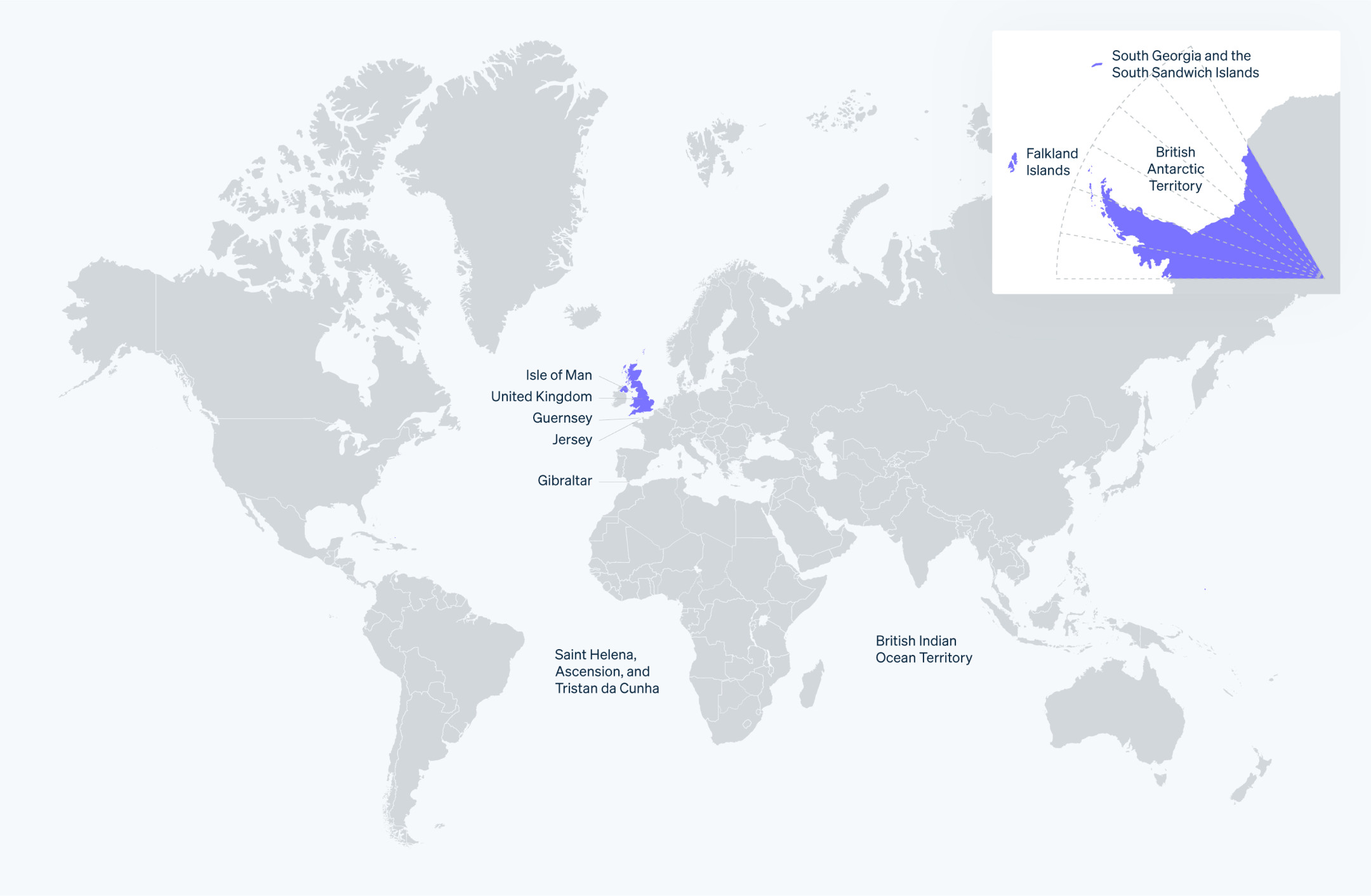The British Pound Sterling, commonly known as the pound, stands as a cornerstone of the global financial system. In 2023, it held its position as the fourth most traded currency worldwide. This prominence underscores the pound’s extensive use in international trade and finance, playing a pivotal role in foreign exchange markets. This significance is rooted in the historical and ongoing economic policies of the United Kingdom and the enduring status of London as a global financial hub. The UK’s leadership in global financial services, encompassing banking, insurance, and asset management, means that fluctuations in the pound can have far-reaching effects on global financial markets and investment trends.
For businesses, the pound offers a stable and reliable currency for trade, investment, and international contract pricing. Companies operating within and outside the UK benefit from using the pound for transactions, reducing currency conversion costs and simplifying accounting processes.
This guide provides a concise overview of the British Pound and explores the regions where it is utilized. Crucially, it addresses a common question for those unfamiliar with European economics: Does Britain Use The Euro?
In this article, we will cover:
- A brief history of the British Pound.
- The importance of the British Pound in the global economy.
- Why the UK does not use the Euro.
- Which countries and territories use the British Pound.
A Brief History of the British Pound Sterling
The British Pound, officially termed Pound Sterling, boasts the title of the oldest currency still in use today, with a history spanning over 1,200 years. Its origins trace back to Anglo-Saxon times, around 775 AD, when it was introduced as coins made of sterling silver. The term “Pound Sterling” itself originates from the fact that 240 of these coins weighed one pound. Following the Norman invasion in 1066, the feudal system took hold, and the pound became a standard unit of account. The terms “shilling” and “pence” also emerged during this era.
Significant changes to the pound occurred during the Tudor period under Henry VIII in the 16th century. Debasement of the coinage took place, reducing the precious metal content to produce more coins. With the Stuart Restoration in 1660, Charles II aimed to stabilize and improve coinage quality. This included the introduction of the gold guinea in 1663, valued at one pound. Over a century later, the Coinage Act of 1816 established a formal gold standard, solidifying the pound’s stability and strength, and contributing to London’s rise as a major financial center.
The 20th century brought economic challenges for the Pound Sterling, including the repercussions of world wars and the decline of the British Empire. In 1931, Britain abandoned the gold standard, and the pound underwent several devaluations, notably in 1949 and 1967. Decimalization occurred on February 15, 1971, replacing the old system of pounds, shillings, and pence with a simpler system where one pound equaled 100 new pence.
Towards the end of the 20th and beginning of the 21st centuries, the pound faced competition from the Euro but remained a significant global reserve currency. Notably, in the 1990s, the United Kingdom chose not to adopt the Euro, reinforcing the pound’s status as a symbol of British sovereignty. Throughout its history, the Pound Sterling has represented economic power and political and cultural influence in the financial world.
The Global Significance of the British Pound
As the oldest currency still in circulation, the British Pound carries historical prestige and commands considerable trust in international finance. Its long-standing reputation as a stable and dependable medium of exchange underpins its strong position in global markets. The pound continues to influence the world economy in several key ways:
- Reserve Currency: The Pound Sterling is a major global reserve currency. Many governments and institutions hold substantial amounts of British Pounds as part of their foreign exchange reserves. Its stability and liquidity make it a safe haven for value preservation, making it attractive for international trade and finance.
- Highly Traded Currency: The UK’s significant role in international trade and investment ensures the pound’s widespread use in international transactions, particularly within the Commonwealth and regions historically linked to Britain. The Pound Sterling is one of the most actively traded currencies, surpassed only by the US dollar, Euro, and Japanese Yen. This high trading volume reflects consistent demand and contributes to its strength and stability in global commerce.
- Monetary Policy Indicator: The Bank of England’s monetary policy decisions, including interest rate adjustments and other measures, are closely monitored by investors and economists worldwide. Changes in these policies can have significant ripple effects across global markets, influencing economic activity far beyond the UK’s borders.
- Economic Indicator: Given the UK’s economic importance and openness, the pound is often seen as a barometer for broader economic trends in Europe and globally. Fluctuations in the pound’s value can signal shifts in economic expectations and investor sentiment.
Why Doesn’t Britain Use the Euro?
Despite being a member of the European Union for several decades, the United Kingdom never adopted the Euro as its official currency. This decision is rooted in a combination of economic, political, and symbolic factors:
- Economic Independence: Retaining the Pound Sterling was seen as crucial for maintaining economic independence. Adopting the Euro would have meant relinquishing control over monetary policy to the European Central Bank. The UK government preferred to control its own interest rates and inflation targets to suit the specific needs of the British economy.
- Historical and National Identity: The Pound Sterling is deeply intertwined with British history and national identity. As the world’s oldest currency, it is a powerful symbol of sovereignty and tradition. For many in the UK, abandoning the pound for the Euro was seen as a step too far in European integration and a loss of national distinctiveness.
- Public Opinion: Public opinion in the UK has consistently been against adopting the Euro. Concerns about loss of control, potential economic disadvantages, and national pride contributed to strong resistance to Euro adoption among the British populace.
- “Five Economic Tests”: In 1997, the Labour government under Tony Blair set out “five economic tests” that would need to be met for the UK to consider joining the Eurozone. These tests were highly stringent and focused on whether Euro adoption would be in the UK’s national economic interest. Ultimately, the government concluded that these tests were not met.
- Opt-Out Clause: The UK negotiated an opt-out clause in the Maastricht Treaty, which formed the basis of the European Union. This opt-out legally allowed the UK to remain outside of the Eurozone and retain the Pound Sterling.
Even after Brexit, and the UK’s departure from the European Union, there is no indication that Britain will consider adopting the Euro. The decision to remain outside the Eurozone reflects a long-standing commitment to economic and political autonomy, and the enduring significance of the Pound Sterling to the United Kingdom.
Where is the British Pound Used?
The British Pound, or Pound Sterling, is the official currency of the United Kingdom and several other territories.
- United Kingdom: This includes England, Scotland, Wales, and Northern Ireland.
- British Antarctic Territory: This British Overseas Territory uses the British Pound.
- British Indian Ocean Territory: The British Pound is the official currency, although the US dollar is also commonly used in this British Overseas Territory.
- Falkland Islands: This British Overseas Territory issues the Falkland Islands Pound, which is pegged to and exchangeable with the British Pound. Both currencies are used.
- Gibraltar: This British Overseas Territory issues the Gibraltar Pound, also pegged to the British Pound. The British Pound is also legal tender in Gibraltar.
- Guernsey: This self-governing Crown Dependency uses the British Pound and the Guernsey Pound, which is at parity with the British Pound.
- Isle of Man: The British Pound is legal tender in the Isle of Man, a self-governing Crown Dependency. It also issues its own version, the Isle of Man Pound (or Manx pound), which is equivalent to the British Pound.
- Jersey: This self-governing Crown Dependency uses the British Pound and the Jersey Pound, which is also equivalent in value.
- St. Helena, Ascension and Tristan da Cunha: This British Overseas Territory uses both the British Pound and the Saint Helena Pound, which is pegged to the British Pound.
- South Georgia and the South Sandwich Islands: As a British Overseas Territory, they use the British Pound.
 Map highlighting countries that use the British Pound Sterling, including the United Kingdom and its territories.
Map highlighting countries that use the British Pound Sterling, including the United Kingdom and its territories.
Disclaimer: The content of this article is for general information and educational purposes only and should not be construed as legal or tax advice. Stripe does not warrant or guarantee the accuracy, completeness, adequacy, or currency of the information contained in this article. You should consult with a qualified legal or tax advisor licensed in your jurisdiction for advice regarding your specific situation.

